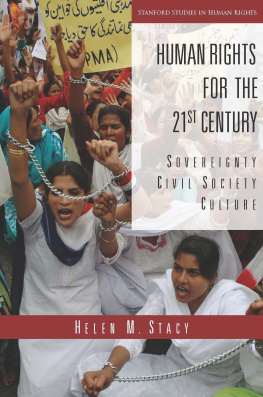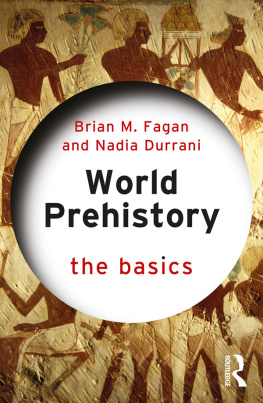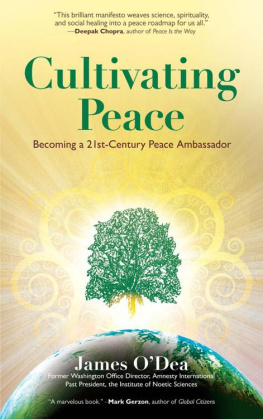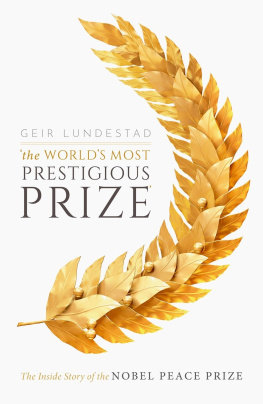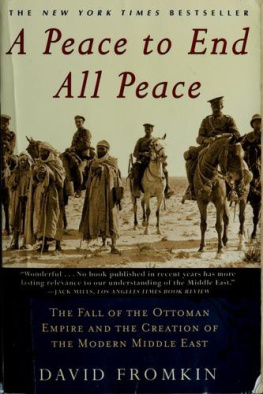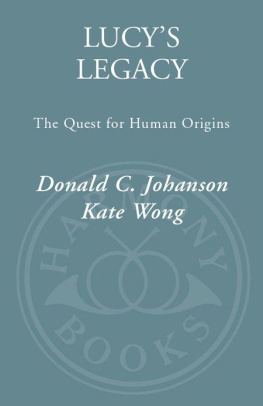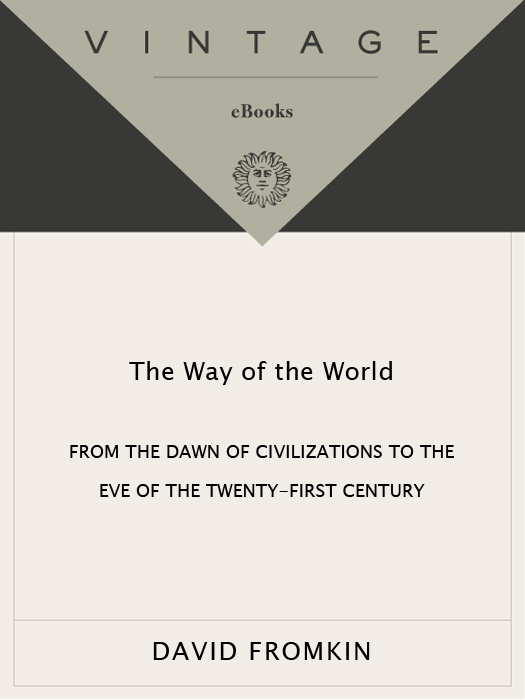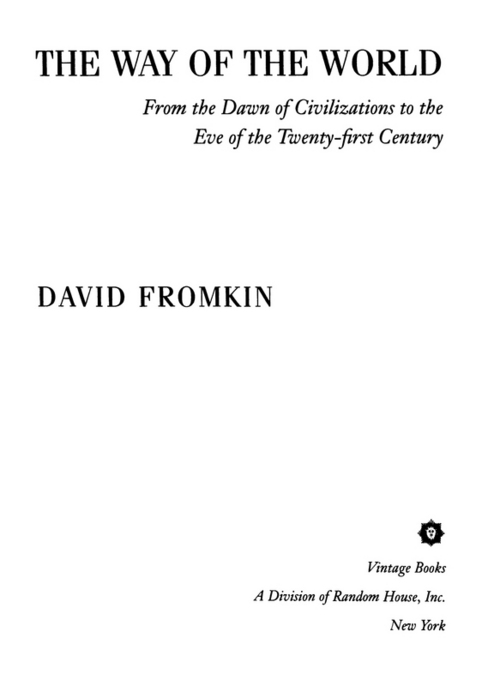Acclaim for DAVID FROMKINs
THE WAY OF THE WORLD
[The Way of the World] certainly has the virtues of conciseness, and the giant steps he has chosenfrom becoming human to achieving rationality to ruling ourselvesare wisely chosen. An achievement.
The New York Times
The Way of the World [is a] superbly crafted historical analysis of the story of humanity and civilization.
Bookpage
Fromkin is a skilled raconteur with a keen eye for telling anecdote and a conquistadors power to cover vast swaths of territory in a short amount of time.
Publishers Weekly
The Way of the World is an appropriate reminder that good scholarship and good reading are not mutually exclusive. In telling the human story so well, it makes a significant contribution to our understanding of ourselves.
The Boston Book Review
Mr. Fromkin is good at getting the reader to turn the pages.
The Economist Review
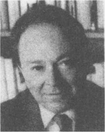
DAVID FROMKIN
THE WAY OF THE WORLD
David Fromkin is Professor of International Relations, History, and Law at Boston University. He is the author of In the Time of the Americans, a History Book Club selection, and A Peace to End All Peace, a national best-seller, which was a finalist for both the National Book Critics Circle Award and the Pulitzer Prize and was singled out by The New York Times Book Review as an Editors Choice, one of the thirteen Best Books of the Year. He lives in New York City.
Also by DAVID FROMKIN
In the Time of the Americans
A Peace to End All Peace
The Independence of Nations
The Question of Government
FIRST VINTAGE BOOKS EDITION, JANUARY 2000
Copyright 1998 by David Fromkin
All rights reserved under International and Pan-American Copyright Conventions. Published in the United States by Vintage Books, a division of Random House, Inc., New York, and simultaneously in Canada by Random House of Canada Limited, Toronto. Originally published in hardcover in the United States by Alfred A. Knopf, a division of Random House, Inc., New York, in 1998.
Vintage and colophon are registered trademarks of Random House, Inc.
The Library of Congress has cataloged the Knopf edition as follows: Fromkin, David.
The way of the world: from the dawn of civilizations to the eve of the twenty-first century / David Fromkin.
p. cm.
Includes bibliographical references.
1. World history. I. Title.
D23.F76 1998 9814574
909dc21
eISBN: 978-0-307-76605-2
Author photograph by Jerry Bauer
www.vintagebooks.com
v3.1
To Wallace Sellers
who told us how to fail and now
has shown us how to succeed
Contents
PART ONE: PAST
1: BECOMING HUMAN
T ens of thousands of years ago, in a cave in southwestern Europe, a shaman clad in bearskin told tales of past and future to his rapt followers. A flickering flame cast moving shadows on the wall. Blood had been spilled; spirits had been invoked. Speaking in a low, hypnotic tone, the shaman made life and death, the seasons of the Earth and the movements of the sky, intelligible to his people. He retold familiar stories of the tribe to which they belonged: its wanderings; the long-ago ancestor from whom they had descended; and the destiny that had been foretold for them.
Can you do that for us today? asked the Wall Street hedge-fund manager over a luncheon in midtown Manhattan. He had been told that I was teaching at a university and was challenging me. Can you tell the story of humanity in the universe and make it whole?
Well, actually, yes, I can, I said, though of course I have to do it in my own way. My way of telling itthough it begins with the creation and multiplication of civilizations, and their lives and deathsconcentrates mostly on the lines that led to the only civilization still surviving, the scientific one of the modern world, and on the prospects before it.

How do you tell the story of Mankind? Oddly, I used to know someone whose job it once had been to answer that question. It was my friend Walter Fairservis, and the reason he had to answer the question was that he was helping to design a new Hall of Asian Man for New Yorks American Museum of Natural History that would provide a panorama of Asian history.
Walter, who died a few years back, was an anthropologist and archaeologist, but above all an adventurer: a forerunner in real life of the fictitious Indiana Jones. He was a big man, an outdoors type with a weatherbeaten look, rumpled and shaggy. His special field of scholarship was the origin of civilizations. He excavated mainly in Egypt and in Pakistan, but he also roamed the rest of the world, whether on camelback or jet airplane, comparing the beginnings of ancient times in one place with those in another.
Asia is the continent on which human civilization first appeared; its flourishing is a long story, too big to be told comprehensively. Fairservis recognized that the most he could do was to select displays that would get a few of the most important points across to viewers.
Visitors had a choice of two entrances to the exhibition. One took you through chronologically, beginning with the origins of human life and culture. If you followed this path, you came away with a sense of how much material progress the human race has made in its relatively short life span.
The other entrance, as I remember it, displayed a marketplace in central Asia as it might have appeared in the time of Marco Polo (a bit before 1300 A.D .), with goods from an enormous wealth of cultures. From there, you could choose your path to whichever culture most interested you. Viewers came away not only with a sense of the broad range of civilizations contained in Asia alone, but also, it may be assumed, with an idea of the extraordinary variety of human society in the world as a whole.
Material progress, and the variety of cultures: here were two observations about the history of the past that were important and true. Visitors could observe for themselves, and draw their own conclusions. It seemed to me that this was about as much as you could communicate successfully in the course of one visit.
I try to do something similar. I focus on an aspect of human experience: on change, in particular with regard to the way we organize and govern ourselves, and how we deal with the issues of war and peace and survival. I concentrate on some of the turning points in history and look at where they have led, and where they will lead in the future if we continue on the same path. Narrated in such a way, the turns in the life of the human race form a story that can be outlined in no more time than it takes to tell a tale, as a shaman would, around an evening campfire.
Like those who first put their hands and minds to the writing of history, Herodotus and Thucydides, Greeks of the fifth century b.c., I will deal essentially with the high drama of battle and politics. If instead I were surveying the history of art or science, of literature or music, I would work from a different outline and would have a different tale to narrate.


